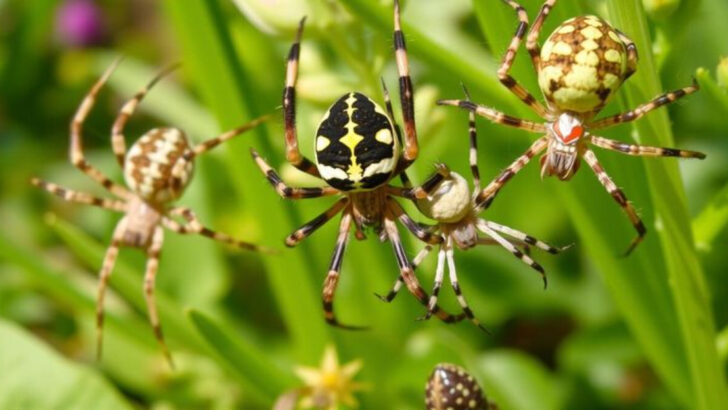Spiders don’t want to crawl into your mouth while you sleep. That’s not a thing. Stop telling people it is.
We’ve been fed a web of lies about these eight-legged creatures. From campfire tales to internet clickbait, spiders have been painted as the villains of the insect (sorry, arachnid) world—lurking in shoes, plotting your demise, and biting for fun. None of that is true.
Spiders are more misunderstood than your favorite emo band from high school. They’re not out to get you—they’re actually your secret pest control army, working overtime while you scream and swing shoes at them.
This post is here to unravel the myths—18 of them, to be exact. Some will make you laugh, others might gross you out, and a few might even make you appreciate spiders. Or at least stop yelling when you see one in the bathroom.
Spiders Are Aggressive
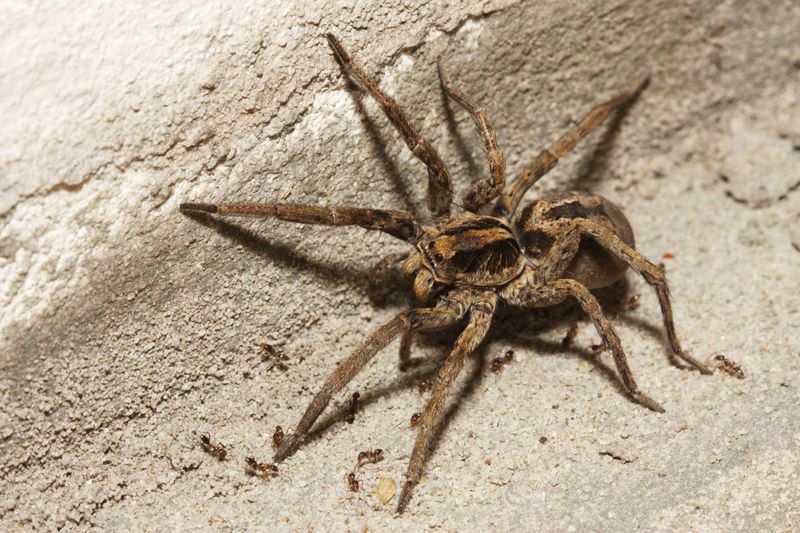
Many people believe spiders are aggressive, ready to bite at any moment. However, these creatures are typically shy and prefer to avoid human contact. Most species will only bite in self-defense if threatened or provoked. Imagine a spider as a recluse, staying hidden in its web, not unlike an artist engrossed in their work.
The mere presence of humans is enough to send them scurrying away. Understanding this gentle behavior helps reduce unnecessary fear and encourages coexistence.
In reality, spiders contribute greatly to controlling insect populations, making them valuable allies rather than foes.
All Spiders Are Poisonous
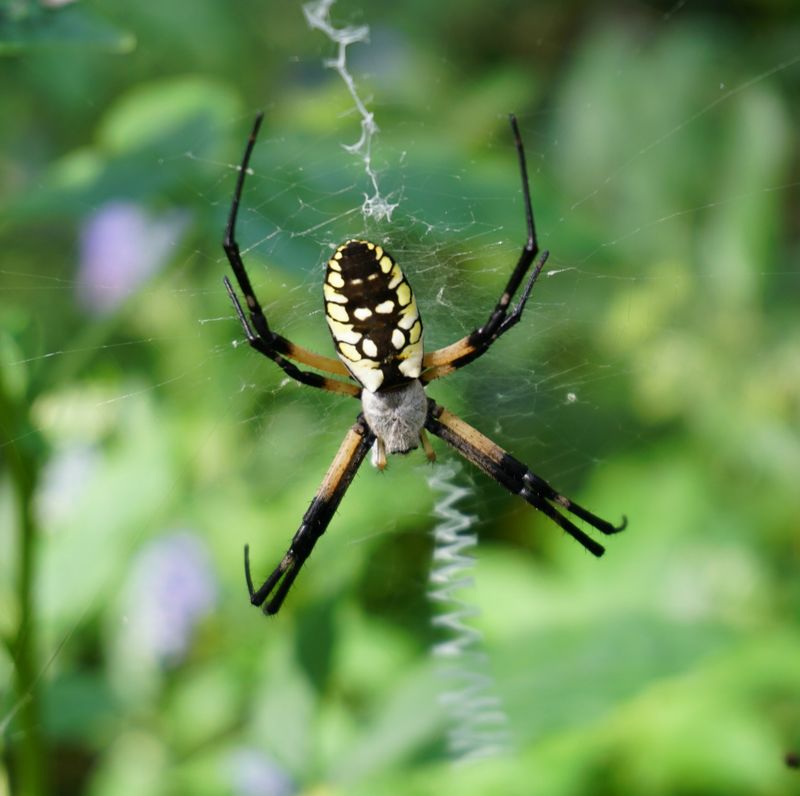
The myth that all spiders are poisonous is rooted in misunderstanding. While it’s true that most spiders possess venom, only a few species pose any real danger to humans. The majority of spider venom is designed to subdue their prey, not harm larger creatures like us.
Think of it as a tool, much like a chef’s knife, essential for survival but not inherently dangerous.
In fact, many spiders are completely harmless and vital to a healthy ecosystem. Clarifying this misconception can help reduce unwarranted fear and foster a greater appreciation for these beneficial creatures.
Spiders Often Invade Homes
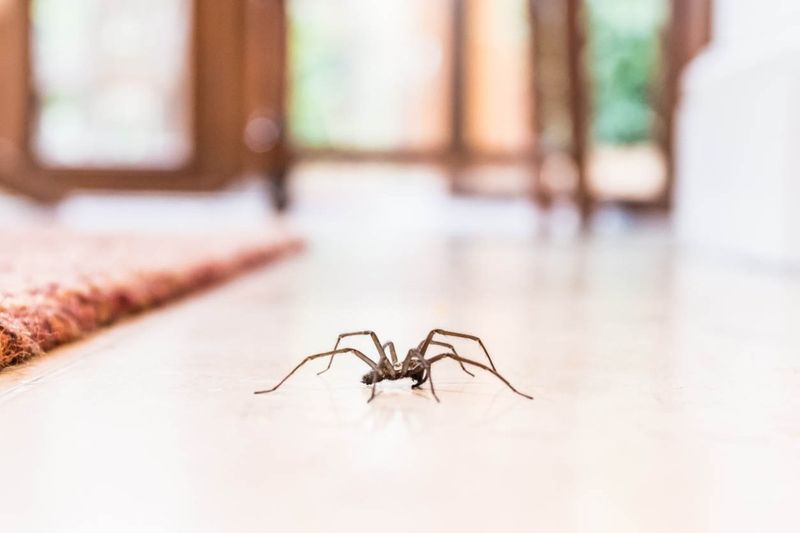
The notion that spiders frequently invade homes seeking to terrorize residents is largely unfounded. Most spiders prefer the great outdoors, finding the indoor climate too dry and devoid of food.
When they do appear inside, it’s typically by accident, having hitched a ride on clothing or plants. Picture a small wanderer accidentally lost in a bustling city, far from its preferred habitat.
By understanding their natural habits, we can better appreciate that these arachnids aren’t setting out to invade but just finding themselves in unfamiliar territory.
Spiders Are Bad For Gardens
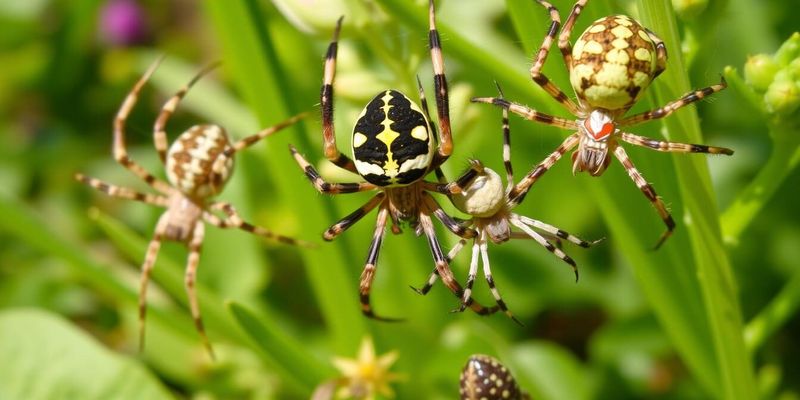
Contrary to popular belief, spiders are actually beneficial for gardens, acting as a natural pest control. They prey on insects that could otherwise damage plants, playing a crucial role in maintaining garden health.
Visualize them as tiny gardeners, diligently working to preserve the beauty of your flowers and vegetables.
Instead of seeing them as intruders, acknowledge their contribution to the ecosystem. Encouraging their presence can lead to a more vibrant and balanced garden environment, where every creature has its role to play.
All Spiders Spin Webs
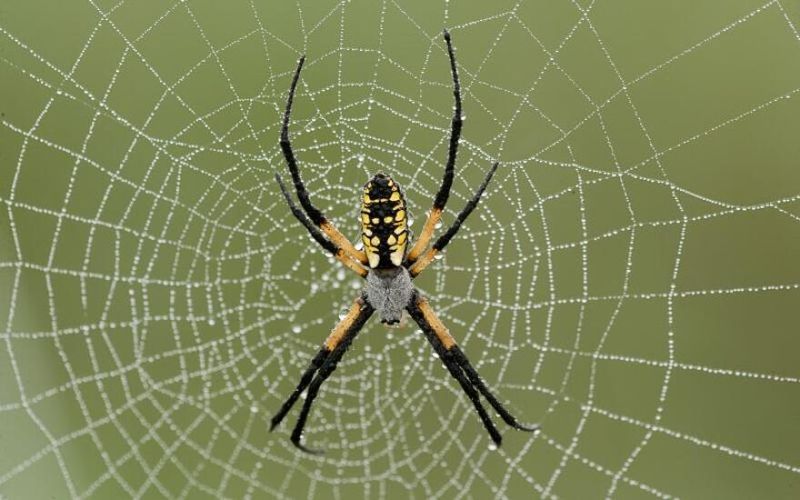
A common myth is that all spiders spin webs. In fact, only about half of the spider species use webs to catch prey. Others are hunters, relying on speed and agility.
Imagine them as skilled hunters in the animal kingdom, each with unique techniques. For instance, the jumping spider stalks its prey much like a cat, while the wolf spider chases down food.
Recognizing this diversity helps us appreciate the intricate lives of spiders, showing they are far more than just web weavers.
Spiders Are Insects
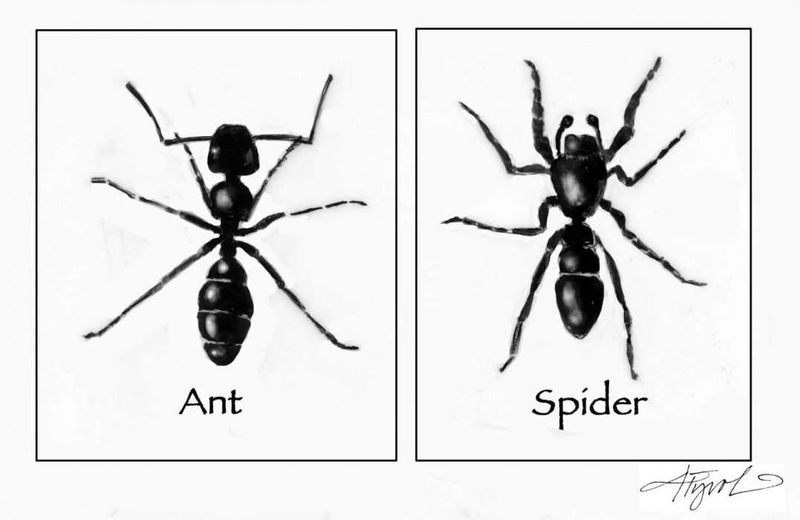
Many people mistakenly categorize spiders as insects. However, spiders belong to the arachnid family, distinct from insects with their eight legs and two body parts.
Think of them as the more sophisticated relatives, much like a cousin who chose a different career path.
This distinction is crucial for understanding their biology and role in the natural world. By correcting this misconception, we can better appreciate the unique characteristics that set them apart from insects, celebrating their individuality in the animal kingdom.
Daddy Long Legs Are the Most Poisonous Spiders
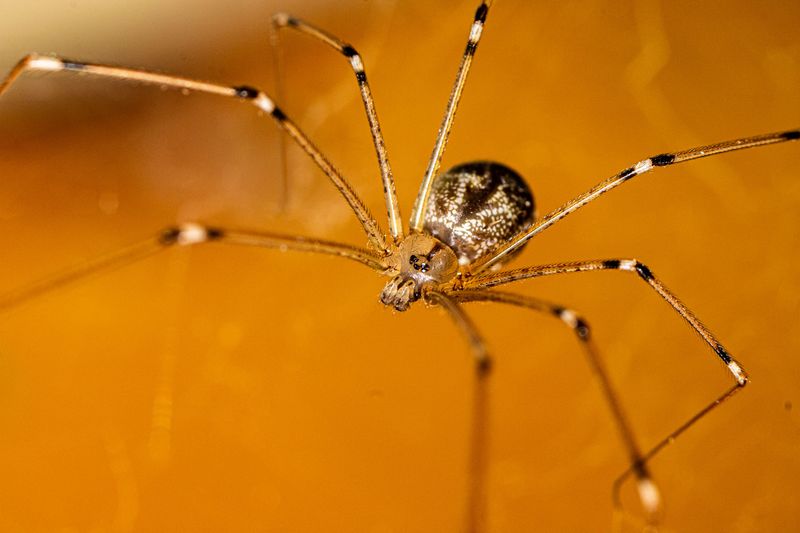
The belief that daddy long legs are the most poisonous spiders is a widespread myth. In reality, their venom is harmless to humans, and they rarely bite.
Imagine them as gentle giants in the spider world, often misjudged due to their size and appearance. These creatures prefer to shy away from confrontation, opting for a peaceful existence.
Understanding this helps dispel unnecessary fear, allowing us to view them as benign members of the arachnid family, rather than dangerous foes.
Spiders Can Lay Eggs Under Human Skin
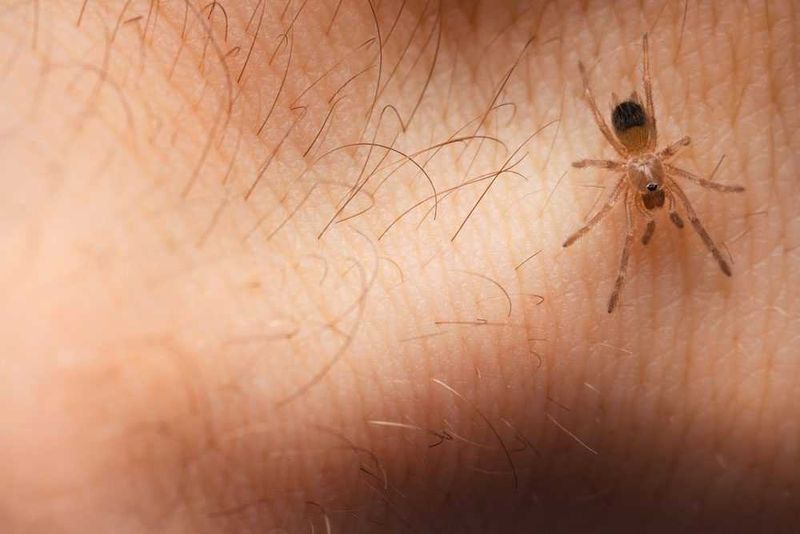
A chilling myth suggests that spiders can lay eggs under human skin. This is pure fiction, stemming from urban legends and horror tales.
In truth, spiders have no interest in human bodies as nurseries for their offspring. Picture them more like cautious parents, carefully selecting hidden spots in the environment, far from human activity.
This myth highlights the power of storytelling in shaping fears, yet understanding the real habits of spiders can ease unnecessary worries and promote a more informed perspective.
Spiders Are Always Dangerous
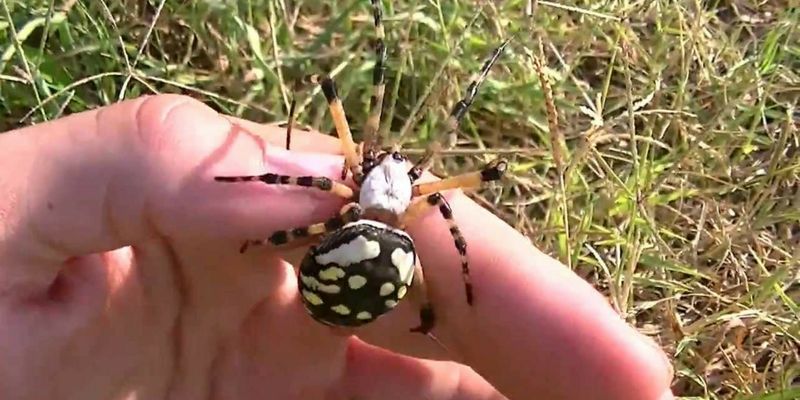
The notion that spiders are inherently dangerous is a gross exaggeration. Most species are harmless to humans and play vital roles in ecosystems.
Visualize them as quiet custodians, maintaining balance by controlling insect populations. Their presence is more a sign of a healthy environment than a threat.
Acknowledging this can shift perceptions, helping people see spiders not as menacing creatures but as important contributors to ecological health, deserving respect and understanding.
You Swallow Spiders While Sleeping
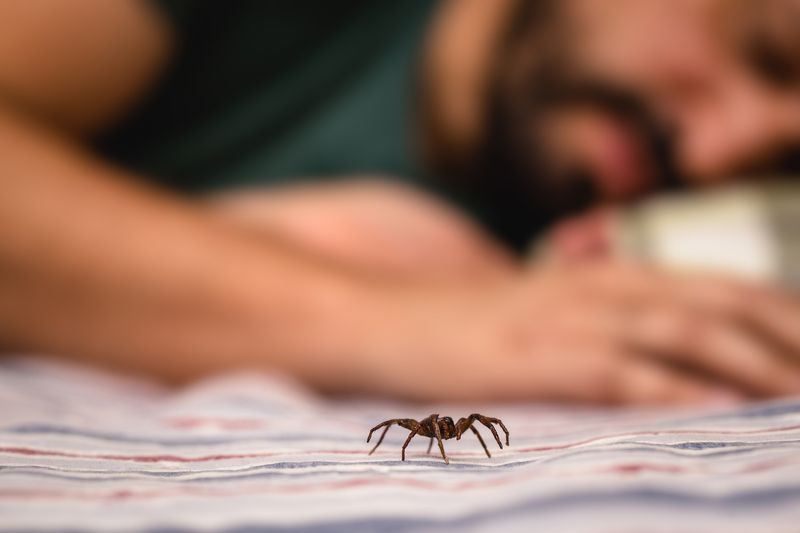
The creepy idea that people swallow spiders while sleeping is nothing more than an urban legend. Spiders have no interest in crawling into mouths; they are more likely to avoid human presence altogether.
Think of your bed as a sanctuary, free from such intrusions. In reality, spiders are repelled by the vibrations and sounds of sleeping humans.
This myth underscores our tendency to fear the unknown, but understanding spider behavior can dispel such irrational fears, allowing for a more restful sleep.
Spiders Are Dirty
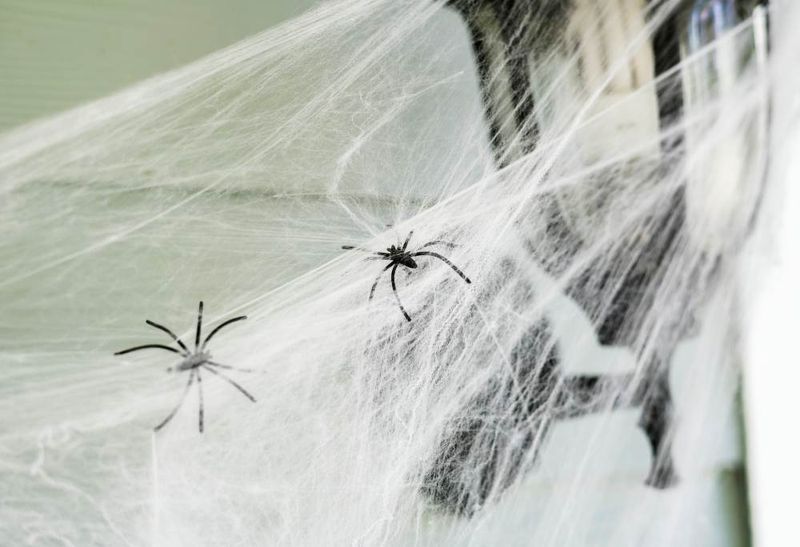
The misconception that spiders are dirty creatures is unfounded. In fact, they are quite meticulous about their webs, regularly cleaning and repairing them.
Consider them akin to fastidious housekeepers, ensuring their surroundings are orderly and functional.
Their cleaning habits highlight their adaptability and care for their environment. Recognizing this trait can help dispel negative stereotypes, fostering a greater appreciation for their contributions to cleanliness and balance in nature.
Spiders Cause Disease
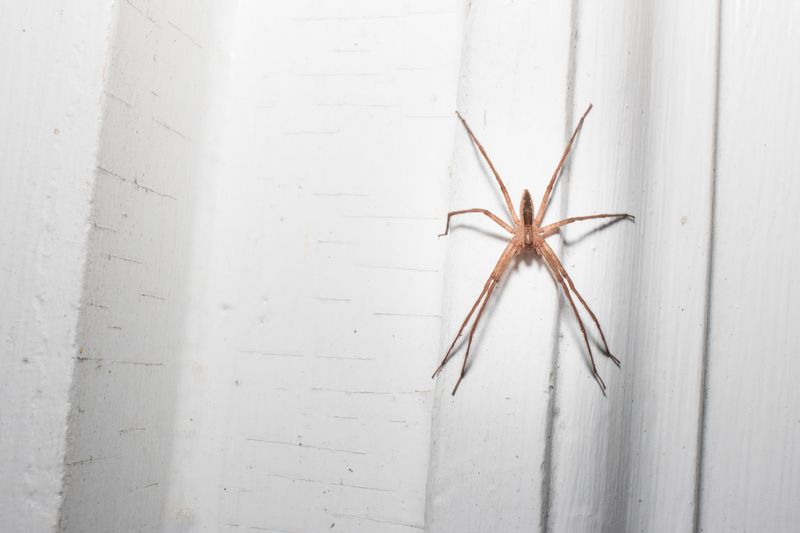
Fears about spiders causing diseases are largely exaggerated. Unlike other pests, spiders are not vectors for disease transmission.
Imagine them as the unsung heroes of pest control, reducing the number of disease-carrying insects in the environment. Their presence actually contributes to a cleaner, healthier habitat.
By understanding their beneficial role, we can appreciate spiders for their positive impact, rather than fearing them as potential threats to health.
Spiders Can’t Live in Cold Climates
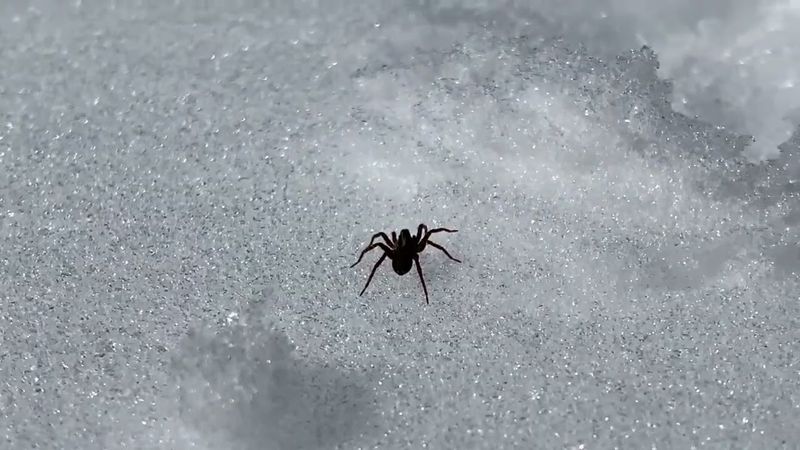
The belief that spiders cannot survive in cold climates is a misconception. Many species have adapted to thrive in icy conditions, finding shelter in crevices or under snow.
Visualize them as resilient adventurers, navigating harsh environments with grace. These adaptations showcase their incredible ability to endure and evolve.
Understanding their resilience can foster respect for their survival skills, highlighting their significant role in diverse ecosystems, regardless of climate.
Spiders Are Solitary Creatures
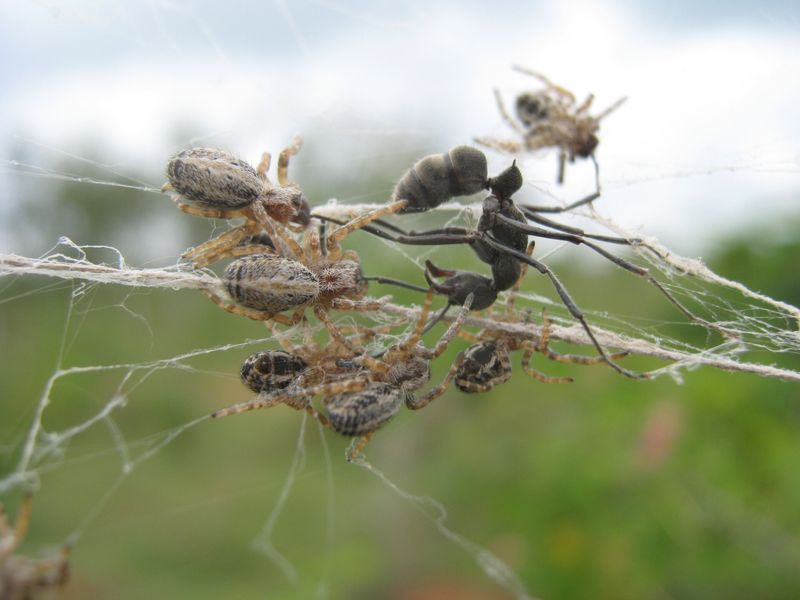
While many spiders are solitary, some species, like the social spider, live in communal webs, working together to capture prey.
Picture them as members of a complex society, cooperating much like a team to achieve a common goal. This social aspect is a fascinating deviation from the norm.
Recognizing their social tendencies can deepen our understanding of spider behavior, showcasing a side of them that is often overlooked.
Spiders Are Useless
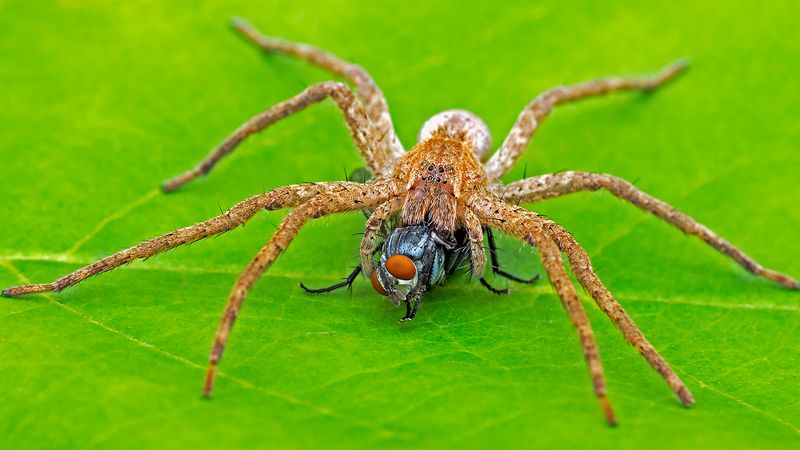
The myth that spiders are useless couldn’t be further from the truth. They are crucial in maintaining ecological balance, controlling insect populations that could otherwise become pests.
Imagine them as the unsung architects of biodiversity, silently ensuring harmony in nature. Their presence is a testament to their indispensable role in the food chain.
By appreciating their ecological contributions, we can dispel the notion of their uselessness and recognize their importance in sustaining life.
All Spider Bites Are Dangerous
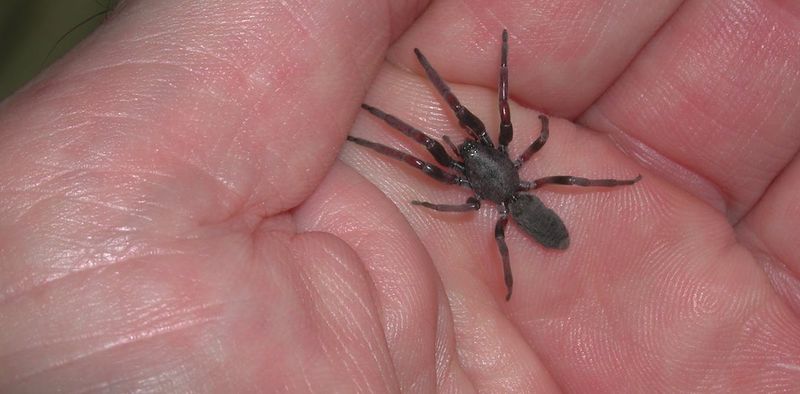
The fear that all spider bites are dangerous is largely unfounded. Most bites are harmless, with only a few species capable of causing significant harm to humans.
Consider them as misunderstood artists, their true nature often masked by fear and misinformation. These bites are more often a defensive action than an attack.
Understanding this can help reduce fear and promote a more balanced view of these fascinating creatures.
Spiders Only Live in Webs
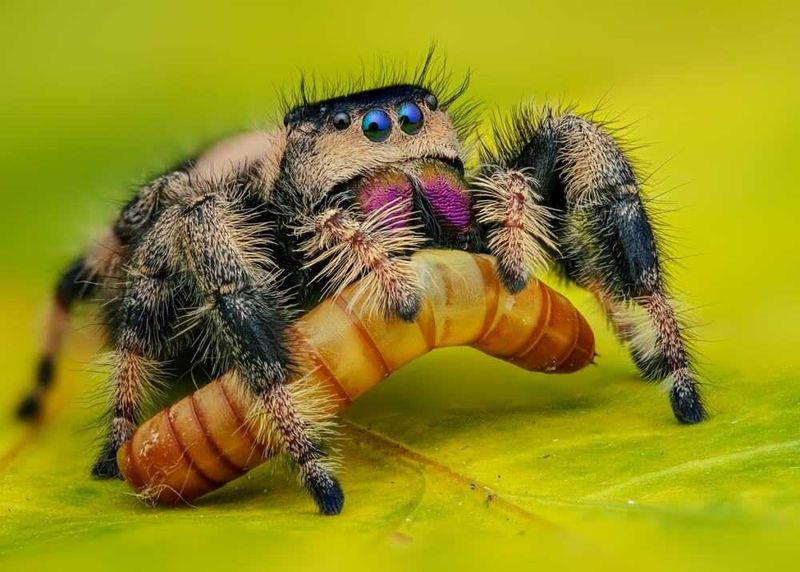
The idea that spiders only live in webs is a misconception. Many species thrive in diverse habitats, from forests to deserts, adapting to their surroundings.
Imagine them as versatile explorers, each with unique habitats that reflect their adaptability and survival skills. Their presence in various environments highlights their ecological importance.
Recognizing this diversity can broaden our perspective, fostering respect for their adaptability and role in the natural world.
Spiders Can Predict the Weather
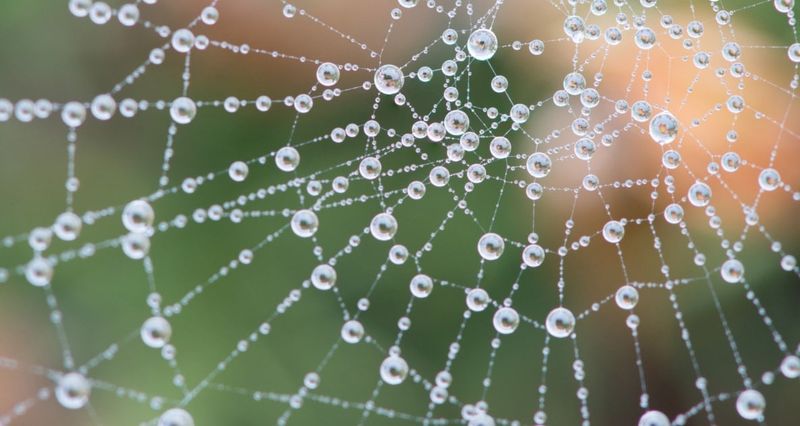
Did you ever hear that spiders can predict the weather? This curious myth suggests that the behavior of spiders can foretell changes in the weather. For instance, when spiders build their webs high, some say it signals clear skies, while low webs imply rain is coming.
This notion, though charming, lacks scientific backing. Spiders adjust their web-building based on survival needs, like prey availability and environmental comfort, rather than any meteorological insight.
Next time you see a spider weaving its web, appreciate its artistry and adaptability, but perhaps check the forecast elsewhere for your weather predictions!

